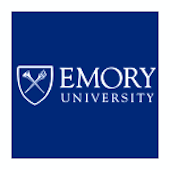Rama Rao Amara, PhD, is an expert in developing vaccines against infectious diseases such as HIV, SARS-CoV-2, HCV and Influenza. For the past 21 years, Dr. Amara’s research is focused on understanding the pathogenesis and immune correlates for HIV/AIDS with a major focus on the development of novel prophylactic vaccines and therapy approaches to control HIV/AIDS. Dr. Amara’s laboratory develops novel HIV vaccines using combinations of DNA, MVA and protein-based vaccine-delivery platforms, and molecular adjuvants, such as CD40L and GM-CSF. Dr. Amara’s laboratory also develops novel vaccines that can be delivered orally, such as Lactococcus lactis, a probiotic-based vaccine delivery and needle-free oral vaccination platform to induce strong mucosal immunity. He played a major role in the preclinical development of the AIDS vaccine that completed Phase 2a human clinical trials. Dr. Amara is also working with collaborators in India to develop an HIV vaccine that could be used to control AIDS on the Indian subcontinent where the strains of HIV that predominant differ from those most frequently transmitted in the U.S. and other Western countries. In addition to the development of preventive vaccines, Dr. Amara’s laboratory develops approaches to treat HIV infection by combining PD-1 check point blockade therapy with vaccination.
Dr. Amara quickly changed focus in early 2020 to apply knowledge from his more than 20 years in HIV/AIDS vaccine work to develop a vaccine for COVID-19. This vaccine is currently being manufactured in India for human testing. He received a grant from the National Institute of Allergy and Infectious Diseases (NIAID) for this research and was recently featured talking about his COVID-19 vaccine in the season 2 opening episode of "Your Fantastic Mind."
Dr. Amara received his doctorate in molecular biology and immunology from the Indian Institute of Science in Bangalore, India. His thesis on the immunopathogenesis of Mycobacterium tuberculosis, the causative agent of tuberculosis, received the prestigious “Best Thesis Award for 1999.” He completed his postdoctoral training in the Yerkes lab of Dr. Harriet Robinson.
Experience
-
–presentProfessor of Immunology and Microbology, Emory University
- Atlanta, Georgia, U.S.
- Article Feed
- Joined


